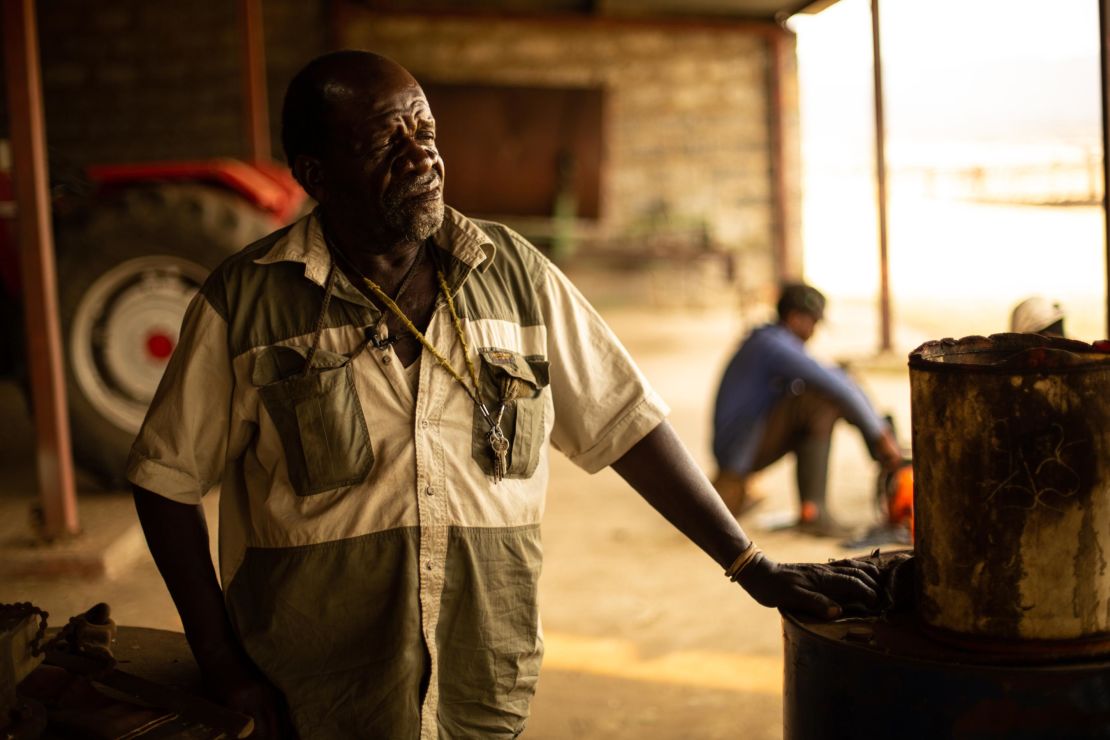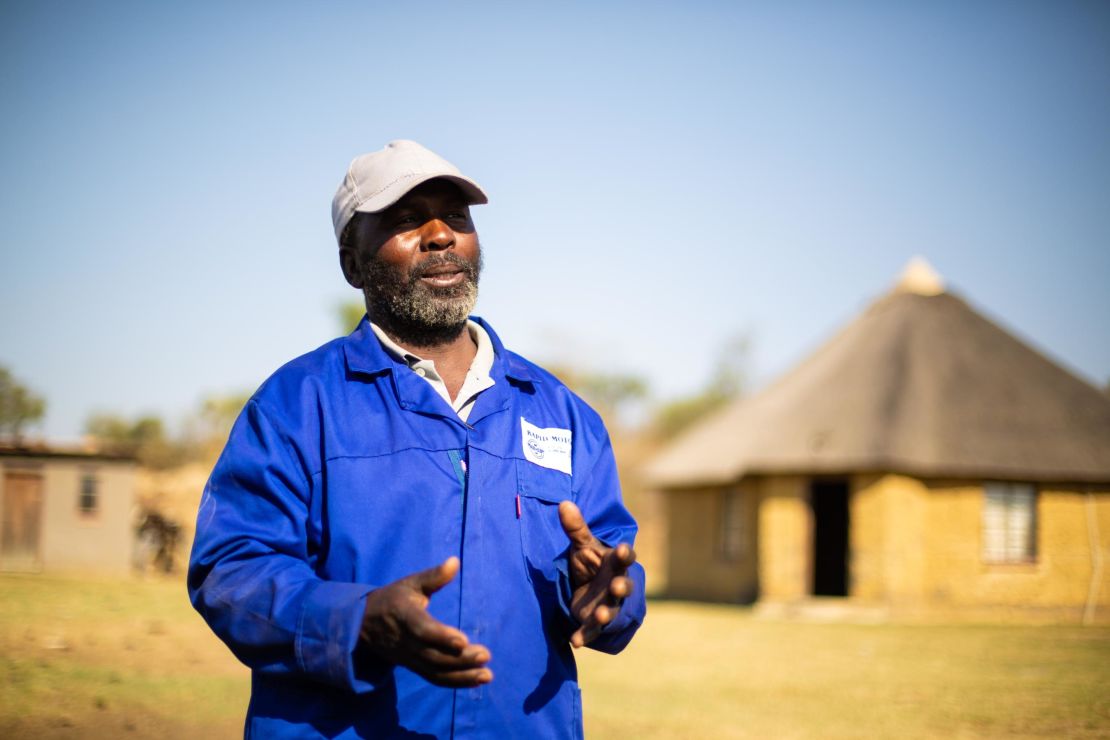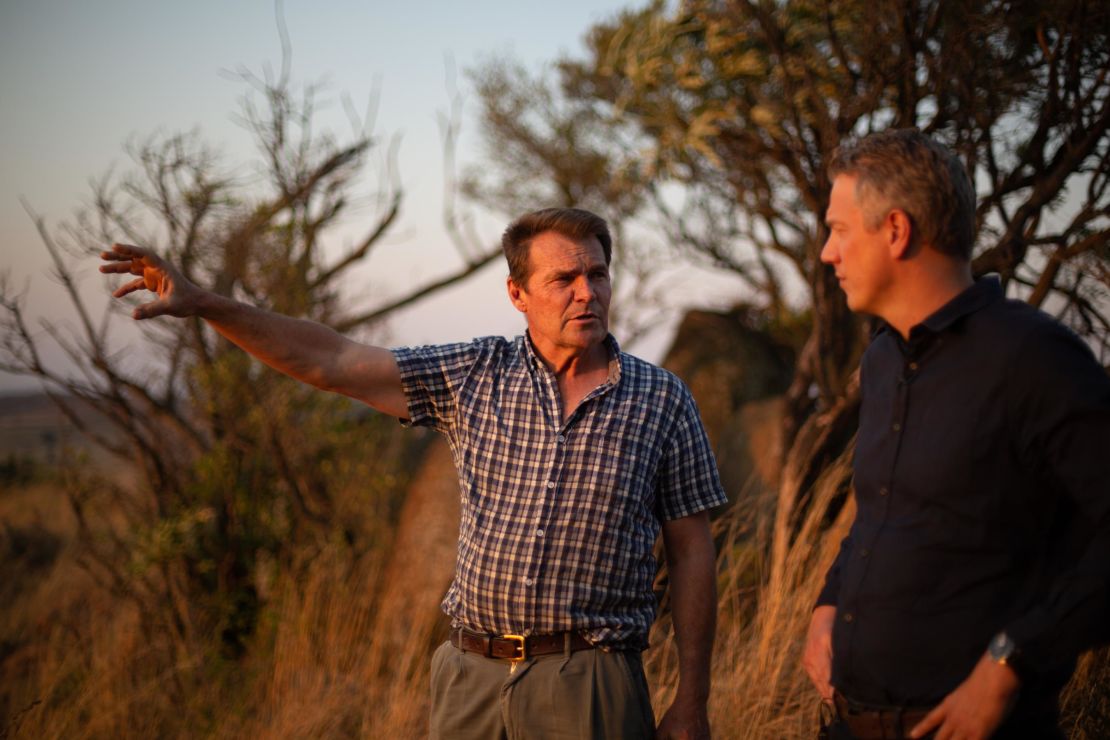To understand what questions of land seizures and farm murders are all about, rural KwaZulu Natal is a good place to start.
Roland Henderson walks on the creaky floorboards of his stone farmhouse and points to a series of five sepia photographs hanging on the cream wall.
“These are my ancestors on the wall. So, if I loaf about during the day, they are watching me,” he says with a chuckle.
Henderson’s family has farmed in Besters, a cattle district of rolling grassland hills and acacia trees, for five generations.
“History is complicated in South Africa,” I remark to him. “Our forebears took land from people. If not always directly, it was certainly helped by the legislation of the previous government. What do you think of that part of your legacy?”
“We can’t ignore that. I don’t think commercial farmers should atone for all the sins of apartheid that were committed,” he says.
In Besters, the farmers are grappling hands-on with one of South Africa’s most challenging historical problems.
When Nelson Mandela and the African National Congress came to power in South Africa in 1994, one of the key dilemmas they faced was the so-called land question.
The policy of pushing non-white South Africans off the land to the benefit of whites officially began with the 1913 Native Lands Act, though in reality the practice stretches back centuries.
The act limited black ownership to just 7% of the land. The vast majority of viable land was allotted to whites.

President Cyril Ramaphosa recently described the Lands Act as South Africa’s “original sin.”
“In my own family it happened twice, where land was taken, we were moved from where my parents had grown up owning land, working the land, they were moved and dropped into an arid place with no compensation whatsoever,” said Ramaphosa in an exclusive interview with CNN.
“As it is now, the poverty that we have in South Africa, in part, has been given rise to by people not having assets.”
This racist geography was accelerated during the apartheid years, when legislation codified the nationalist party’s aims to keep races physically separated. Blacks and mixed-race South Africans were removed from cities and pushed into townships or homelands – land allotted to non-whites, according to their ethnic identity.
They had to have a passbook, a kind of internal passport, to travel to designated white areas.
In Ladysmith, the nearest town to Besters, the “black spots” in town were erased in the 1970s, the non-white families forced out to a township called Ezakheni, some 15 miles away.
With the advent of democracy, land redistribution was, in theory, a top priority. But the South African government’s efforts have been beset by problems.
The farmers in Besters didn’t wait for them to rectify the past.
More than a decade ago, the commercial farmers in Besters held hundreds of meetings with the local community. As a result, with the help of government money, they have redistributed almost half of their district’s land.
“It’s complicated and there are many layers of history and many layers of conflict, but if you put everybody around a table and you talk to each other openly and honestly, you can find each other,” says Henderson.
Emerging farmers like Ndizane Khosa have used their new land to raise cattle, chickens and sheep, and access to capital has allowed them to pull their families out of poverty.

“When we were growing up we had no idea how this farming worked, but our grandkids have the opportunity to learn properly now. I can pass that knowledge to them,” Khosa says.
“In our district I have seven neighbors and they are all different colors, but we live happily together and there’s place in the sun for us all,” says Henderson.
The success of land redistribution in Besters is the anomaly, not the norm.
Exhaustive studies show that the ANC-led government has failed to execute its policy of land restitution and redistribution because of corruption, mismanagement and a lack of will. The vast majority of private land – farmland included – is owned by whites.
“A lot is at stake,” said Ramaphosa. “You could even say that the stability of the country is at stake. And I am not fond of failing at anything. And this issue we will not fail on.”
The ANC, pushed by an insurgent opposition party on the left, has resolved to amend the constitution to explicitly allow land redistribution without compensation. It is a highly contentious move that is working through a parliamentary process.

While Henderson, Khosa and the other farmers of Besters managed to broker a negotiated future for the land in their rural slice of South Africa, they are facing new pressures to take sides in the land debate.
RELATED: They’re prepping for a race war. And they see Trump as their ‘ray of hope’
They say the extremes could scupper the experiment of a democratic South Africa.
“We are getting drowned out by the rhetoric and by the noise of the politicians and the noise of others,” says Henderson on the balcony of his farmhouse. “It is difficult to galvanize the middle, because we tend to be more silent than the extremes. The middle needs to have their voice heard.”
CNN’s Gabrielle Smith contributed to this report.

